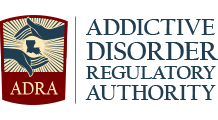Every person has emotional highs and lows. But while that’s a regular part of life for some, others experience periods of intense emotions that can have a significantly negative impact on their life.
Bipolar disorder is a mental illness that affects a person’s mood, energy levels and ability to focus. It can cause you to experience hypomanic (less severe), manic (elated, energized or irritable) and major depressive episodes.
According to the National Institute of Mental Health (NIMH), the three most common forms of bipolar disorder are categorized by the type of episodes you might experience. They are:
- Bipolar I disorder: Having at least one manic episode that lasts at least seven days
- Bipolar II disorder: Experiencing at least one hypomanic and one major depressive episode, but not a full-blown manic episode
- Cyclothymic disorder: Experiencing hypomanic symptoms and depressive symptoms for at least two years without a full hypomanic, manic or major depressive episode
Bipolar disorder can be extremely disruptive to a person’s chances of living a productive, satisfying life. But with professional support at a bipolar disorder treatment center like Ascension Saint Thomas Behavioral Health Hospital, you can manage these symptoms and experience long-term health and happiness.
Signs & Symptoms of Bipolar Disorder
The ups and downs of intense emotions are not the only symptoms people who have bipolar disorder struggle with. Fluctuations in sleep patterns, changes in activity levels and engaging in uncharacteristic behaviors without understanding their harmful effects are all signs that a person may need to find a treatment place for bipolar disorder.
The best way to understand the signs and symptoms of bipolar disorder is to separate manic or hypomanic episodes from major depressive episodes. A person who is experiencing a manic or hypomanic episode might have symptoms like:
- Racing thoughts
- Increased confidence
- Lack of need for sleep
- Rapid speech patterns
- Excessive energy
- Greater levels of self-esteem
- Propensity for jumping from topic to topic during conversations
- Feeling of invincibility
If you’re having a major depressive episode, you may display some of the following signs:
- Extreme sadness
- Subdued mood
- Distancing from loved ones
- Significant weight gain or weight loss
- Major changes in appetite
- Trouble focusing
- Loss of interest in once enjoyable activities
- Difficulty completing simple tasks
If you’re struggling with any of these signs or symptoms of bipolar disorder, it’s important to find a treatment place that can help. At Ascension Saint Thomas Behavioral Health Hospital, we will provide a complimentary assessment to help you understand your unique needs and determine if our treatment center is the right environment for you.
Bipolar Disorder Statistics
Bipolar disorder affects men and women equally, according to the National Alliance on Mental Illness (NAMI).
The following are some additional statistics about bipolar disorder:
- According to NAMI, almost 83% of bipolar disorder cases among U.S. adults are classified as severe.
- NAMI also reports that bipolar disorder affects approximately 2.8% of the U.S. population.
- NIMH states that 4% of American adults will be diagnosed with bipolar disorder at some point during their lifetime.
Potential Bipolar Disorder Effects
Living with bipolar disorder without receiving appropriate treatment can be devastating for both the individual who is struggling and their family and friends. It’s critical to find a bipolar disorder treatment center that can provide the personalized support you deserve to help you manage these symptoms.
Every day you live with this mental illness without seeking professional support puts you at risk for negative outcomes such as:
- Financial strain
- Social isolation
- Difficulty focusing or keeping up at work or in school
- Chronic unemployment
- Inability to form or nurture relationships with family and friends
- Substance use and addiction
- Onset or worsening of additional mental health disorders
- Suicidal ideation
- Illness or injuries related to irresponsible, thoughtless behavior
A 2019 study from the National Institute of Mental Health found that as many as 60% of people who have bipolar disorder attempt suicide and as many as 20% of those who have bipolar disorder die by suicide. This rate of suicide is approximately 10-30 times higher than that of the general population.
The good news is that bipolar disorder is a treatable condition. By exploring your options for professional care at a bipolar disorder treatment place, you can discover that your best days are still ahead of you.
The Benefits of Bipolar Disorder Treatment
In addition to the danger of failing to receive bipolar disorder treatment, there are also many benefits to getting help at a professional treatment center.
Like many mental health concerns, bipolar disorder can give you an overwhelming sense of isolation. But at our inpatient bipolar disorder treatment center, you’ll work with experts who understand the uncertainty this illness has made you feel. You’ll also be able to learn from other patients who have felt the effects of bipolar disorder, and you’ll come to understand that you aren’t alone as you navigate the recovery process.
By finding a bipolar disorder treatment place that promotes an environment that is conducive to healing, you can take ownership of your thoughts and actions and begin to regain control of your physical, social and emotional well-being.
Why Choose Our Bipolar Disorder Treatment Center
Everyone who struggles with bipolar disorder has a unique story and a unique journey. That means that it’s crucial to find a bipolar disorder treatment center that stresses the importance of personalized care.
Ascension Saint Thomas Behavioral Health Hospital provides individualized inpatient treatment for adults age 18 and older who are struggling with bipolar disorder. Our experienced clinicians deliver acute care so that patients who are in a state of crisis can achieve stability and begin to function at a higher level.
You’ll have access to 24-hour nursing care in a safe setting that’s free of judgment. We’ll monitor your progress every step of the way, and when your time with us is complete, you’ll be able to use the tools you’ve acquired to help with a lifetime of healing.
Therapies Used in Bipolar Disorder Treatment
When you arrive at Ascension Saint Thomas Behavioral Health Hospital, you will complete a detailed assessment that allows our team to create a personalized bipolar disorder treatment plan. We’ll consider your medical history, any previous treatment and the nature and severity of your symptoms to tailor a plan that addresses your unique needs and goals.
Your treatment plan may include:
- Individual therapy
- Group therapy
- Family sessions
- Experiential therapy
- Medication management
Our bipolar disorder treatment place uses evidence-based modalities such as cognitive behavioral therapy (CBT) to deliver the most beneficial outcomes.
At the end of your time with us, you’ll receive a detailed discharge plan that will provide you with the resources you need to maintain your progress in the days, weeks and months to come.
This content was written on behalf of and reviewed by the clinical staff at Ascension Saint Thomas Behavioral Health Hospital.






















